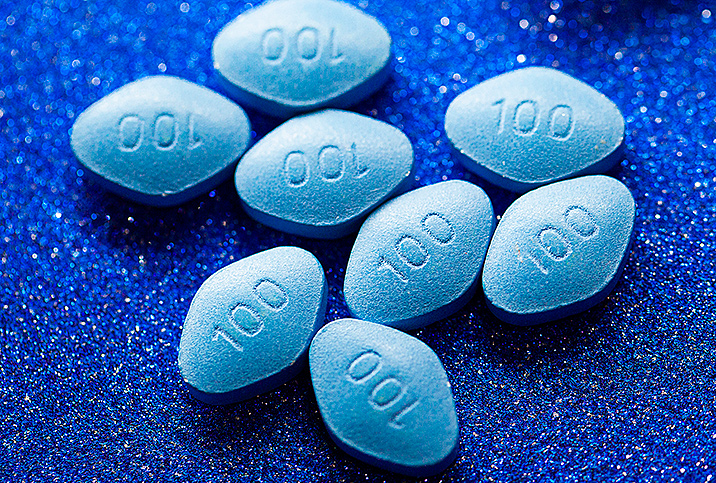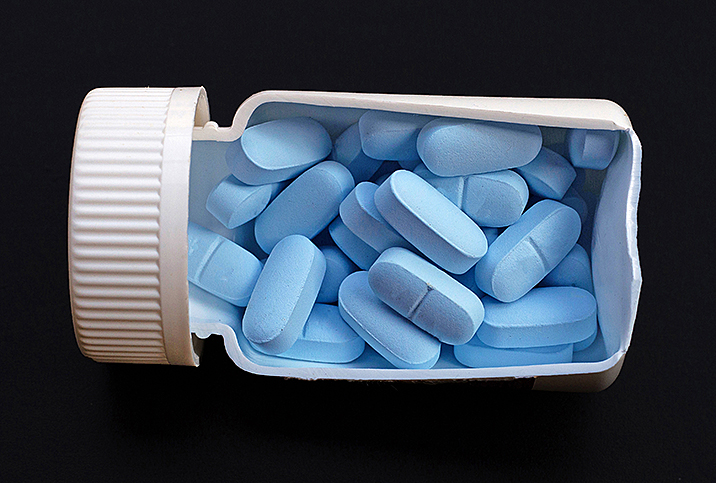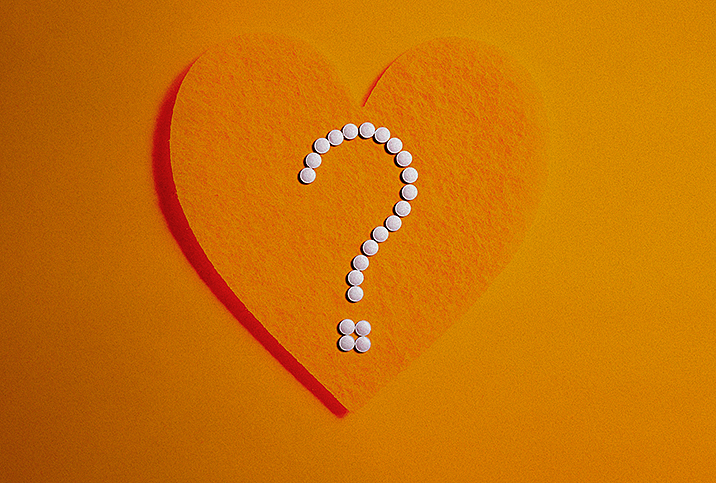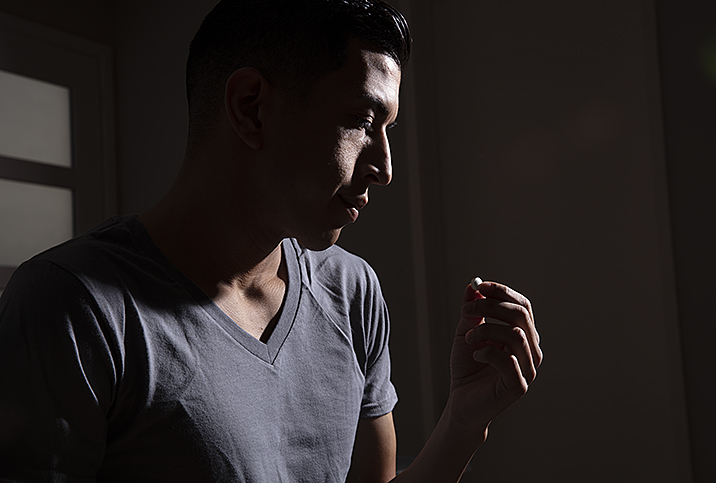Young Men Use ED Meds for the Rewards but Shouldn't Ignore the Risks
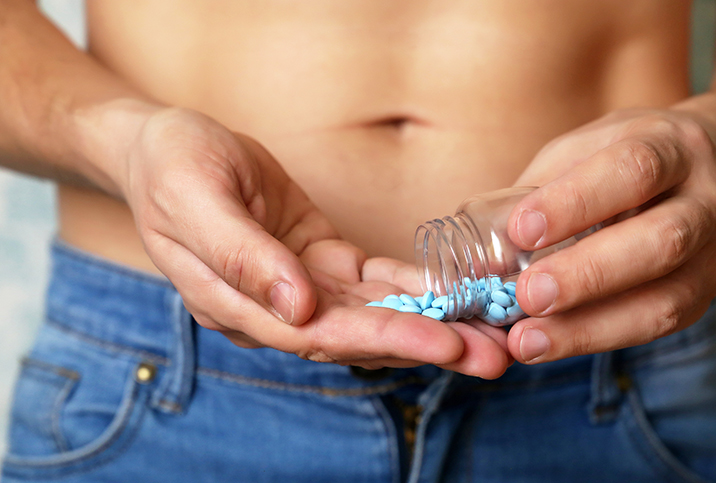
"Better living through chemistry" was the cheerfully weird corporate slogan of the DuPont chemical company starting in 1935. The phrase later morphed into a tongue-in-cheek mantra for 1960s psychedelic adventurers.
These days, a surprising number of young men have adopted this viewpoint on the recreational use of erectile dysfunction (ED) medications. In a world so saturated with prescription meds, is there any risk in younger guys taking boner pills? The drugs aren't addictive, after all, not like benzodiazepines or opioids. So what's the harm in treating yourself—and your partner—to a little extra kick in the bedroom?
Well, there may be more to the story than just young guys looking to amp up their sexual fun.
Why are young men taking ED meds?
Pop-culture jokes during the late 1990s and early 2000s, when ED meds became commonplace, revolved around suddenly vigorous geriatric sugar daddies finding new fire in the bedroom—to the dismay of their trophy wives.
But beyond the expected results for older men, the pills also became popular in gay clubs. Young men who wanted to extend their ability to have sex—or overcome the erection-killing effects of recreational drugs and alcohol—turned to the pills, too.
It wasn't long before ED drug manufacturers also started targeting young straight men, as seen in this 2020 ad campaign for Viagra Connect. Beyond cynically expanding their market reach, drug manufacturers may have tapped into an unexpected, if genuine, need.
What if it's not just for fun?
Younger men also experience ED, with about 26 percent of men younger than 40 noticing erection woes, according to the Journal of Sexual Medicine. Of these, nearly half experienced severe ED, whereas only 40 percent of men older than 40 had severe ED.
The real problem with younger men taking ED pills isn't necessarily the pills themselves or even the ED, but rather what their lack of erections might mean. A wide array of physical conditions—some even life-threatening—are at the root of erectile dysfunction.
A younger man getting nervous and having a little trouble in the bedroom on occasion is one thing. But if a guy under 40 is frequently having problems achieving and maintaining an erection during sex, it could be a sign of future health problems.
Diabetes, high blood pressure and heart disease are three of the most serious conditions that are linked to ED. The connection is so well-established in the case of heart disease that doctors these days routinely screen young men who are experiencing ED for coronary problems.
Indeed, a Johns Hopkins Medicine report stated that men in their 40s who present with ED, even without any other risk factors for cardiovascular disease, face an 80 percent risk of developing heart problems within 10 years.
Are there other risks?
Aside from ED pointing to more serious health problems, other issues may arise from men popping ED pills.
Drug interactions: ED medication works by relaxing the arteries and smooth muscle in the blood vessels in the penis to allow more blood flow when the man is stimulated, which also causes a drop in blood pressure. If the man is also taking blood pressure meds or party drugs such as poppers (alkyl nitrates) that have a similar effect, his blood pressure can plummet—perhaps triggering a trip to the hospital, or worse.
Addiction? In a way: ED meds may not be addictive, but young men may become accustomed to the boost ED meds bring and find themselves unable to function without them.
Conclusions
While ED drugs may not be the worst thing for young men to experiment with, the risks shouldn't be ignored. What's more important is if a younger man is experiencing ED on a regular basis, he should get checked out as soon as possible to make sure it's not a sign of a more serious health issue.












